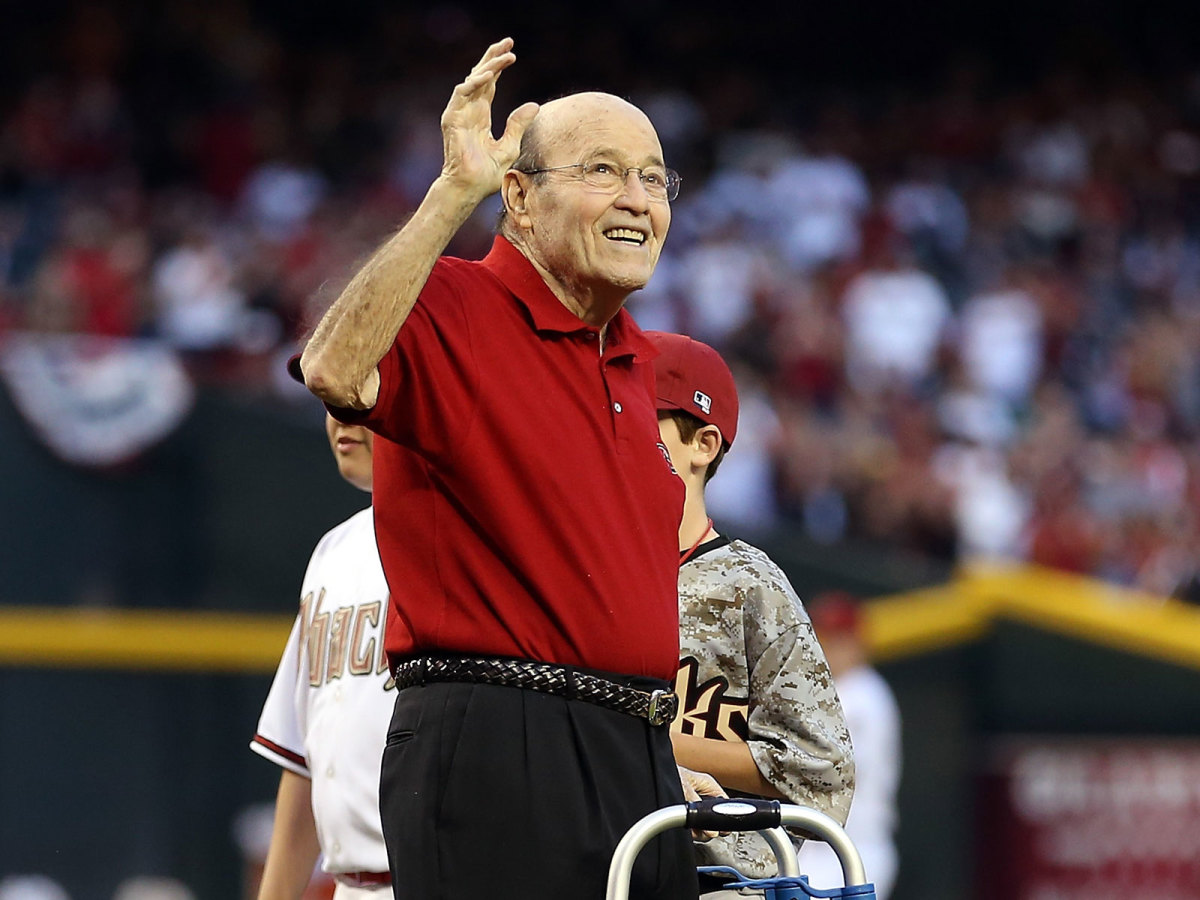How MLB Is Rooting Out its Longstanding Problem With Smokeless Tobacco

On a night of high spirits and free-wheeling fun last week, MLB’s All-Star Game cleared a tiny space for a somber note of reflection. The practice has been included in every All-Star Game and World Series for a decade now, an exercise that’s solidifying into tradition: the moment when everyone in the stadium, from players to umpires to fans, is encouraged to stand with a placard bearing the name of someone who’s battled cancer. Part of the league’s partnership with the charitable organization Stand Up to Cancer, the moment of silence is always poignant. And it quietly underscores another way that baseball has been standing up to cancer lately—the progress that’s been made in pushing smokeless tobacco out of the game.
This season has marked a small milestone in the game’s movement against smokeless tobacco, which includes products such as chew and dip. As of May, smokeless tobacco is now banned in half of major-league stadiums. (The Mariners’ Safeco Field made for No. 15 of 30, when an ordinance passed by the King County Board of Health went into effect this spring.) It represents a key halfway point in what’s been a gradual and years-long process, ridding baseball of a substance that once seemed as integral a part of the game as hot dogs or scorecards.
Smokeless tobacco use has been linked to an increased risk of mouth, tongue, cheek and gum cancers, along with other health risks. Though it’s been banned in college baseball since 1990 and in the minor leagues since 1993, the elimination of chewing and dipping from the majors has proved a far slower process. The effort began in earnest in the mid-’90s, primarily as the crusade of one man: Joe Garagiola, the retired broadcaster and catcher, who chewed himself in the ‘50s and ‘60s. In 1994, Garagiola began an annual tour of major league clubhouses to discuss the dangers of smokeless tobacco with players and managers, part of what would become known as the National Spit Tobacco Education Program.

“People need to know smokeless does not mean harmless,” Garagiola told SI in 1997. “I call it spit tobacco because it’s gross.”
Garagiola remained committed to the fight until his death two years ago, even testifying about the hazards of smokeless tobacco in front of Congress in 2010. During MLB’s next collective bargaining period in 2012, the league took a big step forward in banning players from carrying tobacco packages or tins in their pockets at any time when the ballpark was open to fans, as well as from using the products during pregame or postgame interviews. By this time, some cities had already begun making laws and passing resolutions to ban smokeless tobacco from ballparks on their own, but the process accelerated soon after—when the movement reached a tragic turning point in the death of Hall-of-Fame outfielder Tony Gwynn, who passed away from salivary-gland cancer in June 2014 at the age of 54. Gwynn connected the illness to his decades of dipping, which began when he was a college player at San Diego State University and continued through his time in the major leagues, and in the wake of his death, several players announced that they would quit their own tobacco habits. In 2016, Gwynn’s family filed a wrongful death lawsuit against the U.S. Smokeless Tobacco Company; a court date has been set for next year.
Under MLB’s 2016 collective bargaining agreement, smokeless tobacco was banned for all new major league players. But that historic move marked the beginning of a new frontier for the fight, rather than the end—the hundreds of players already in the big leagues at the time were grandfathered in under the policy, and many of them still dipped. A 2015 study found that 37% of major league players and coaches were smokeless tobacco users, which represented a drop from the half of players who had used a few decades before but was still far higher than the proportion of use among the country’s male population overall.
As the years pass, that number will shrink—as a growing number of cities take their own action to ban smokeless tobacco from the ballpark, and as fewer current players are grandfathered under the league’s policy. The time when dipping and chewing aren’t part of baseball isn’t quite here, but it’s visible in the distance.
